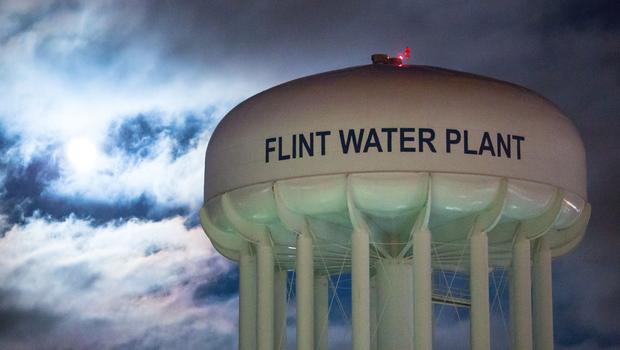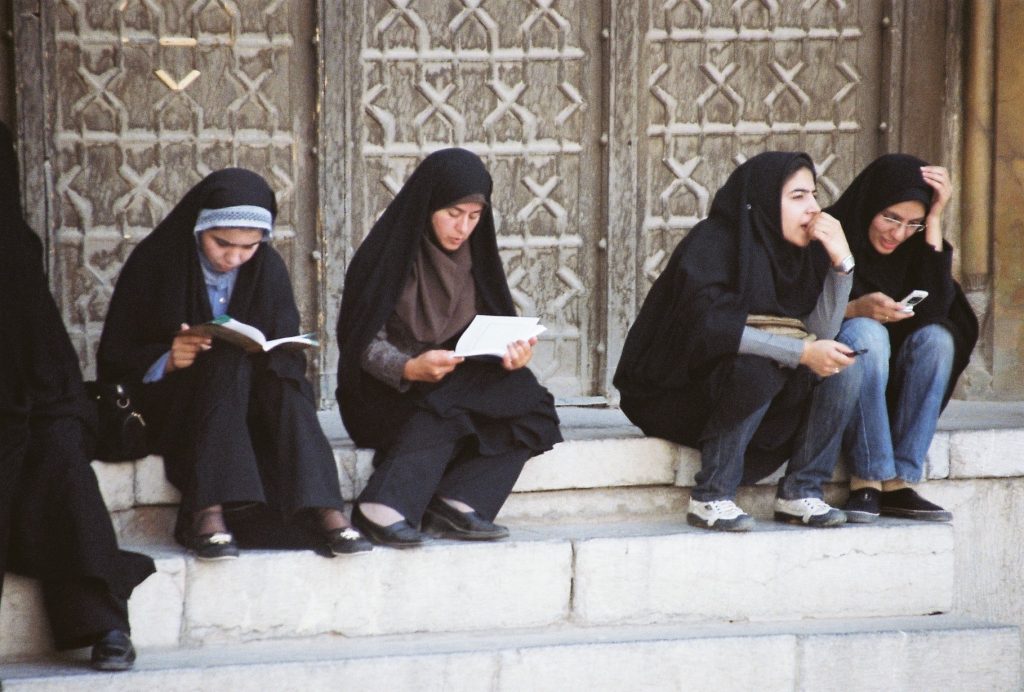Excerpted from our Spring 2016 issue. Available in print or as a downloadable PDF, MQR 55:2 can be ordered for $7 or as part of an annual subscription.
When you cross the border into our state, whether on the highway or arriving in an airport, the first thing you see is a sign proclaiming that you have entered something called “Pure Michigan.” As an advertising slogan, this has always struck me as bizarre. For one thing, purity is not a high value of mine; there seems something vaguely Nazi-ish about it to my jaundiced Jewish eyes. (What next? A picture of Henry Ford accompanied by the words Arbeit macht frei?) Second, our state (like the country as a whole) is a congeries of contradictory populations—the heavily African-American city of Detroit balanced by the mostly white west side of the state; the wealthy, if not plush, suburbs balanced by the rugged and impoverished Upper Peninsula. What’s perpetually astonishing about the state is its variety of ethnic, racial, and class populations—Native Americans on large reservations in the north; Latino seasonal workers who settled down to form new communities in the west; farmers who have been on the land for more than a century; militia fanatics and families in search of a simpler life living cheek by jowl by the little lakes that dot the hinterland; blue-collar workers transporting their big boats up the interstate to drive the locals crazy with their noise and tipsy parties; earnest college students crowding coffee shops in Ann Arbor, East Lansing, Kalamazoo; cynical African-American inner-city dwellers waiting to see just what is the next indignity to be foisted on them by a white governor, a Republican-dominated legislature, and an indifferent corporate sector—all of which have somehow led to open piles of petroleum coke left in black neighborhoods to blow carcinogens into their lungs, rotting school buildings left unattended for lack of state aid and public attention, and the whole lot of indifferences that allowed them to happen in the first place and keep them from being ameliorated or fixed.
Pure Michigan is a fantasy concocted by ad men, presumably after much consultation with focus groups and cogitation on the vicissitudes of branding. And it’s designed to evoke a clear set of associations—clean air and water rushing through a forest glen, authentic people, and honest sentiments. It’s a slander, a shame, a shanda—it does violence to what’s really real about this complicated and multifaceted state, our deep and structural heterogeneity, multiplicity, impurity. But whatever the flaws of this campaign, this past year it appeared to move from the absurd to the heinous. A concatenation of events led to what can only be called one of the most astonishing public disasters of recent memory: the poisoning of an entire city—Flint.
Start with the decline of the auto industry and the collapse of tax revenue. Then follow it with a business-minded governor and a Republican legislature, who cut revenue-sharing funds that went to cities at the same time as they were cutting taxes for the already wealthy. Deal with the ensuing financial catastrophe by appointing an emergency manager answerable only to the governor—and when the citizens rebelled and forced a referendum overturning the emergency manager law, re-pass the measure essentially unchanged except for a new appropriations addendum that rendered the bill ineligible for repeal by referendum. Then, as the city’s revenues collapse, demand fiscal discipline, enforced by the emergency manager. Do all these things and you have, through a series of incremental steps, built a fast track to disaster.
The emergency manager of Flint insisted that to save money (although there’s some controversy as to whether it would have done that) the city switch its water supply from Lake Huron, which also supplies the city of Detroit, to the heavily polluted Flint River; the water, to which a crucial supplement was for some reason not added, travelled through aging pipes, corroding them and releasing large doses of lead to the unsuspecting population. Complaints began almost immediately as citizens found their hair falling out, their children getting mysterious rashes and having cognitive trouble in school; but they were blown off by the emergency manager, answerable only to the governor, and by the bureaucracy surrounding the governor, who saw their complaints as trivial or the result of local agitators, or both. More than a year of poisoning passed before an intrepid researcher, Marc Edwards, and a truly courageous pediatrician, Dr. Mona Hanna-Attisha, forced the quiescent press and the inattentive governor to come to terms with the consequences of this disastrous experiment in the banality of evil: mass poisoning as a result not of terrorism, but of shortsighted penny-pinching.
The real impurity, then, extends from the polluted water to the polluted political system that allowed emergency managers to run cities without being answerable to them, to the cover-their-ass bureaucracy, to the governor who reverses Harry Truman’s credo by whining that the buck stops everywhere but at his desk. The real impurity is the stupidity, selfishness, and racism that is structural to the political system of this and far too many states. Pure Michigan, if there is such a thing, inheres in the heroism of Mona Hanna-Attisha, who kept working to make the government and press acknowledge the harm being done with every drip from every pipe in every house in the entire city; it inheres in the resilience of the people of Flint who fought to be heard.
To be sure, it’s easy to sound this outraged note from the safety of Ann Arbor, where the water is clean. So too it’s easy to hold forth about the complexities of life in Detroit, just forty-five minutes away from our ivory tower (or to be more accurate, the cramped but homey basement rooms that MQR inhabits). And it’s easy as well to totally ignore Northern Michigan and the Upper Peninsula from here—they seem not four hours away, but on an entirely different continent. So I thought I’d gather a few pieces to reflect the heterogeneity of this state and to reflect on the authentic multiplicity that marks aspects of life in Michigan. I asked MQR contributor Kelsey Ronan, a Flintstone by birth, to return from her life in Saint Louis to her home town and reflect on its past, present, and future. In addition, I accepted stories by Matthew Baker and Jack Driscoll, both Michiganders at heart, and a poem about Flint by Tarfia Faizullah, who teaches here at the University of Michigan, all which I thought were in dialogue, explicit or implicit, with Kelsey’s excellent, trenchant, and moving account of the hardships and resolve on display in the unfolding disaster story that is Flint. So I thought we should put them together. We open the issue, then, with a by-no-means definitive account of the State of our State, a necessarily sketchy and incomplete but I hope evocative account of our multiplicity, our challenges, our diverse dilemmas, and our common experience of resilience—in short, our impurity.
Image via CBS News.




